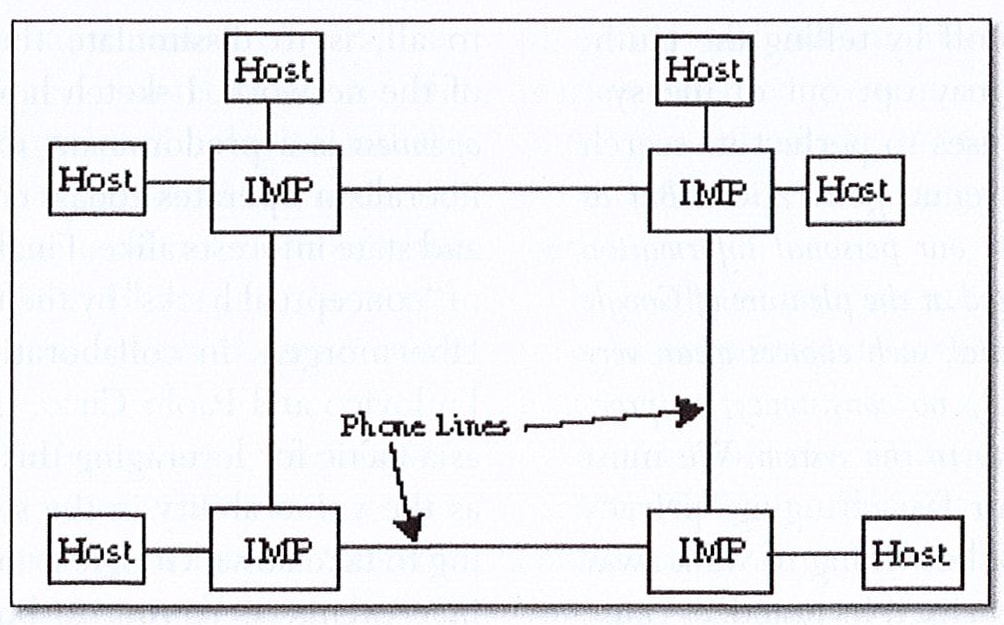This article is reprinted with permission from New Media, Old Media: A History and Theory Reader, ed. Wendy Hui Kyong Chun and Anna Watkins Fisher with Thomas Keenan (New York: Routledge, 2015).
What does radical politics look like in the era of networks? In a moment of unprecedented connectivity, what room for maneuver remains in a system from which there appears to be no way out? I’ll argue in this essay that networks have crystallized the limits of resistance in a digital age, manifesting the accelerated speed of appropriation today. Activists have not merely employed the Internet as a tool but, crucially, as Geert Lovink observes, the Internet has begun to shape the form of political struggle itself. 1 Far from benign, this has given rise to modes of scholarly and artistic resistance that have appeared to mirror their neoliberal context, making it more and more difficult to tell the difference between political action and that which it seeks to work against.
In a post-2008 Global Financial Crisis moment marked by a waning sense of political agency, scholars and artists have looked to theories of new media (and indeed to cybernetics, information systems, and non-human ecologies) in search of serviceable models for conceiving renewed modes of intervention and resistance able to accommodate a sense of feeling implicated in, and even dependent on, a neoliberal system whose survival they nevertheless seek to challenge. That new media theory has been taken up as a means for working through this double bind of political action today is perhaps unsurprising. With the “revolutionary promise” of social media widely hyped in the wake of the Arab Spring and Occupy movements—a fervor that largely dissipated in the aftermath of violent police crackdowns—new media have in recent years signified at once the euphoric potential of Internet activism and the corporate co-option of radical politics in an increasingly militarized climate of governmentality largely hostile to frontal modes of organizing. 2
Social media outlets like Facebook and Twitter have manifested the entanglements of technological buy-in with the protocols of state and corporate power, whether in the appropriation of personal data by such proprietary social media websites or the high-cost labor of the latest, “must-have” mobile gadgetry used to access them. Materializing the privatized economy of transnational telecommunications that makes online participation possible, “the network” has thus consolidated and emblematized the very tangles of complicit action in contemporary life as it has represented both the theoretical abstraction and physical substrate of the immanent ecology of global capitalism. 3
Heralding a brave new world of viral circulation and exchange, characterized by the boundless reach of digital technologies and the hyperconnected character of social life, networks have nonetheless been used to overstate the equalizing effects of circulation and the reciprocal capacities of exchange, as if speed could lubricate democracy or level socio-economic disparity. Wary of media theory’s enthusiastic embrace of the discourse of virality in our neoliberal moment, this essay introduces an alternative genealogy of the viral through the prehistory of parasitism in order to advance a theory of social systems able to account for the political economy of networks today.
So while networks have been embraced as the answer to the problem of mapping complex systems, in fetishizing connectivity and exchange while neglecting their asymmetries, they have proven an impoverished model for capturing a system of gross inequity. 4 Now more than ever, digital networks amplify what Astra Taylor has called a picture of real-world inequity: “Online, just as off-line, attention and influence largely accrue to those who already have plenty of both,” she writes, and thus big media has given way “not [to] a revolution but a rearrangement” in which “giants like Amazon, Apple, Google, and Facebook remain the gatekeepers” and “the new order looks suspiciously like the old one.” 5 Sold as an open system of exchange, they have promoted the lie of reciprocity in a neoliberal system 6 constituted by accelerating processes of uneven precarization. 7
New media’s much-touted virtue of “openness,” by which the digital has been defined from its inception—its collapsing of hierarchy, its exploding of secrecy, its democratization of knowledge—has thereby contributed to blurring the picture of the political economy of networks. Yet as Andrew L. Russell has shown, the constitutive “openness” of the network is deeply ideological insofar as it appropriates the perception that generosity is an absolute good for commercial ends: “For individuals, ‘open’ is shorthand for transparent, welcoming, participatory, and entrepreneurial; for society at large, ‘open’ signifies a vast increase in the flow of goods and information through a global, market-oriented system of exchange. In the most general sense, it conveys independence from the threats of arbitrary power and centralized control.” 8
Ubiquitous and seemingly innocuous, the term “user” perhaps best illustrates the seductive fiction that the network is a hospitable platform. In it are inscribed the agential capacities vested in participation (i.e. being a producer rather mere consumer, an actor rather than mere spectator); however, this empowerment also traffics a concealed form of disempowerment, as companies such as Facebook and Google, by selling themselves as free services, falsely position online subjects as their equals, counterparts able to use and be used equally, while the companies transform the content of this participation into data sold for enormous profit. Such entities selectively perform their agency: presenting themselves as a service in some moments and a mere platform in others. Facebook boasts, “It’s free and always will be,” and Google, as Siva Vaidhyanathan points out, accepts no money for the algorithmic labor of making the messy work of sorting and ranking search results appear clean and simple. 9 Disavowing their monetization of site-based advertising, such corporations insist on their role as hosts rather than users in their own right. The manner by which Facebook and Google position themselves vis-à-vis the user is instructive for how corporations, institutions, and systems at large selectively and strategically dramatize and dissimulate their role within an economy of use.
For those of us for whom Internet access is a given, network culture is not a privilege of which we can simply and fully opt out. To participate online is to find oneself tacitly or automatically conscripted within a larger matrix of control. In The Googlization of Everything, Vaidhyanathan nicely captures the dynamic by which users are given a false sense of agency:
Our blind faith in Google has allowed the company to claim that it gives users substantial control over how their actions and preferences are collected and used. Google pulls this off by telling the truth: at any time, we may opt out of the system that Google uses to perfect its search engine and its revenue generation. But as long as control over our personal information and profiles is granted at the pleasure of Google and similar companies, such choices mean very little. There is simply no consistency, reciprocity, or accountability in the system. We must constantly monitor fast-changing “privacy policies.” We must be willing to walk away from a valuable service if its practices cause us concern. (2011, 83–84, my emphasis)
By accepting the invitation to participate, the user finds him- or herself implicitly engaged in a contract that is subject to ongoing modification without warning and whose terms can only ever be accepted or declined. “The demand to participate can become coercive, exhausting the very collective faculties that it officially celebrates,” Jonathan Sterne writes. “While interactivity can be imagined as the ‘like’ or ‘retweet,’ it also encompasses the ‘agree to terms’ button.” 10 Such is the coercive hospitality of new media, whereby the very terms of participation (as use) are premised on accepting an invitation that can be declined only at significant cost, if at all. The rhetoric of the “user” therefore presents the guest in the guise of an active agent by overstating the individual’s volition within the online space. “In order to operate . . . the Internet turns every spectator into a spectacle,” argues Wendy Hui Kyong Chun. “Users are used as they use.” 11
In this essay, I argue that neoliberal logics find in the coercive hospitality of networks a perfect alibi for concealing the system’s own disavowed interestedness, and it is in this context that scholars and artists have sought modes of intervention—often makeshift and stopgap in character—for using the very system of use in which they have found themselves embedded. I begin by showing how hospitality is the founding logic of networking protocol, on which the Internet is built. The very work of protocol, which claims to be nondiscriminating and welcoming to all, is to dissimulate the potential hostility of the network. I sketch how this performance of openness is a predominant mode by which neoliberalism operates today, enacted by corporate and state interests alike. Finally, I turn to a trilogy of “conceptual hacks” by the tactical media group Ubermorgen, in collaboration with Alessandro Ludovico and Paolo Cirio, that model parasitism as a tactic for leveraging this coercive hospitality as the vulnerability in the system. Whether trying to take down Google using Google’s advertising revenue or trying to buy Kickstarter using Kickstarter, the works I explore in this essay ask if modes of exaggerated complicity might enable new political scripts. Bringing the fields of new media studies and performance studies into overdue dialogue, I read a series of “system errors” to argue that systems perform protocol as a masquerade of logic.
Codes of Conduct
“The language of the RFC was warm and welcoming.”
—Kate Hafner and Matthew Lyon, Where Wizards Stay Up Late 12
Networking is inconceivable outside of the logics of hospitality. The idiom of host domains, servers, clients, and feeds, far from arbitrary, lifts into view the semantic armature of new media. Indeed, the paradigm of hospitality has resided at the heart of communications protocol since the early days of networking. Still struggling over how to map the network of computers that would lay the foundations for the Internet, in 1967 a small group of Advanced Research Projects Agency (ARPA) researchers gathered in Ann Arbor to discuss plans for resource-sharing that would not rely on a centralized computer and would thus be less vulnerable to attack. It was at this meeting that Lawrence “Larry” Roberts first put forward the idea of a national network of “host computers” connected to each other over dial-up telephone lines (Hafner and Lyon 1998, 71).

Networking functions, Roberts proposed, could be handled by “hosts” that would act as both research computers and communications routers. After the meeting, in a cab on the way to the airport, Roberts’ former colleague Wes Clark would suggest an ingenious modification to Roberts’ design: insert smaller computers between the host computers to map a subnetwork of interconnected nodes. These separate computers, dubbed “Interface Message Processors” or “IMPs,” would act as packet-switching nodes (what we call routers today), serving as messengers between the host computers (72–73). This “Host-IMP” topology would serve as an early blueprint for the infrastructure of ARPAnet (Advanced Research Projects Agency Network) protocols, on which the Internet was built (see Figure 1 above). 13
As this history evidences, hospitality—as the semantic bedrock of early network protocol—is the implicit structure that makes the very idea of the Internet thinkable. As such it constitutes the proto-language of protocol and the paradigm of political economy in which the system insistently, and unreflexively, traffics. Attributed as if by default, the language of the “host” appears self-evident and ideologically null. And yet how deeply strange, and ultimately symptomatic, it is that a medium premised on exchange—on the sending and receiving of messages—would be imagined as a network made up only of hosts.
Protocol, as Alexander Galloway has observed, is the “set of recommendations and rules that outlines the computational standards or procedures by which technologies function” (2004, 7). Protocol’s ambition is to be a good host: “It must accept everything, no matter what source, sender, or destination” (243). A term associated with performances of social etiquette—particularly in diplomatic and military contexts—protocol is a “proscription for structure”: “a method of correct behavior under a given chain of command” (29). Like protocols that govern social or political practices, networking protocols establish the common rules of ceremony or formality that enable systems to function effectively (11). Galloway reminds us of this, while insisting on the limits of this analogy; he argues that with the advent of digital computing, social or political protocol is replaced by the technological: “instead of governing social or political practices as did their diplomatic predecessors, computer protocols govern how specific technologies are agreed to, adopted, implemented, and ultimately used by people around the world. What was once a question of consideration and sense is now a question of logic and physics” (7).
Here I want to probe Galloway’s sharp distinction between the sociopolitical and the technological for what it can tell us about the affect of systems. When Galloway argues that protocols “encapsulate information inside a technically defined wrapper, while remaining relatively indifferent to the content of information contained within” (7–8), he appears to leave the fiction of hospitality intact. Describing protocol as non-ideological and ideal receptivity obfuscates the system’s interestedness. There would appear to be a slippage, then, between protocol as logic and protocol as rules in Galloway’s account. Posing as logical becomes a means by which to dodge justifying what really drives it: the rules or agreed upon conventions, which most benefit those who make and host them. Protocol might instead be defined as the terms by which systems perform logicality as a means for disavowing their agency.
We must thus be wary of the supposed unconditionality of hospitality as a neoliberal facade by which networks have trafficked in protocols that instrumentally impose and regulate a distinction between the so-called hosts and guests of the system.
- Geert Lovink, “Organizing Networks in Culture and Politics,” Networks Without a Cause: A Critique of Social Media. (Polity Press, 2012), 158.[↑]
- For an incisive discussion of the frustrated possibilities of political organizing in the digital era, see Geert Lovink and Ned Rossiter, “The Politics of Organized Networks: The Art of Collective Coordination and the Seriality of Demands,” in New Media, Old Media: A History and Theory Reader, ed. Wendy Hui Kyong Chun and Anna Watkins Fisher with Thomas Keenan (New York: Routledge, 2015).[↑]
- Jodi Dean has nicely captured this tangle: “The ideal of the public materializes an economy of transnational telecommunications corporations, media conglomerates, computer hardware, software and infrastructure developers, and content (information and entertainment) providers. . . . Our deepest commitments—to inclusion, equality and participation within a public—[therefore] bind us to practices whereby we submit to global capital.” Jodi Dean, Publicity’s Secret: How Technoculture Capitalizes on Democracy. (Cornell University Press, 2002), 151.[↑]
- Richard Florida argued in his 2005 Atlantic Monthly article that the world is not flat but “spiky.” This is but one possible model for capturing what I am here suggesting is the need for a third dimension that would be able to account for the political economy of the network (as opposed to the two-dimensionality of mostrepresentations of the network). Richard Florida, “The World Is Spiky,” The Atlantic Monthly. October 2005. Accessed 16 September 2014. www.theatlantic.com/past/docs/imagesissues/200510/world-is-spiky.pdf.[↑]
- Astra Taylor, The People’s Platform: Taking Back Power and Culture in the Digital Age. (Metropolitan Books, 2014).[↑]
- Much attention has been paid to the co-emergence of neoliberalism and digital networks over the last four decades. “Frictions within or barriers to this spatial movement take time to negotiate and slow down circulation,” David Harvey writes. “Throughout the history of capitalismmuch effort has therefore been put into reducing the friction of distance and barriers to movement.” David Harvey, The Enigma of Capital and the Crises of Capitalism. (Oxford University Press, 2010), 42.[↑]
- “Precarity” is a provisional term that U.S. academics have borrowed from the European and Latin American Left to describe a state of being made dependent on an unstable system.[↑]
- Andrew L. Russell, Open Standards and the Digital Age: History, Ideology, and Networks. (University of Cambridge Press, 2014), 1–2.[↑]
- Siva Vaidhyanathan, The Googlization of Everything (And Why We Should Worry). (University of California Press, 2011), 1 (subsequent references cited parenthetically).[↑]
- Sterne, Jonathan, “What If Interactivity Is the New Passivity?” Flow TV. 9 April 2012. Accessed 1 March 2014. flowtv.org/2012/04/the-new-passivity/.[↑]
- Wendy Hui Kyong Chun, Control and Freedom: Power and Paranoia in the Age of Fiber Optics. (MITPress, 2008), 28 (subsequent references cited parenthetically). As Chun has shown, since its inception the subject of digital media—the “user”—has been framed through the tropes of addiction and dependency, from William Gibson’s treatment of cyberspace as a drug-addled hallucination in Neuromancer to the aura of sex crimes and porn addiction surrounding the personal computer to the “inseparable” prostheses of mobile media. I argue, however, that parasitism offers a more resonant paradigm for the user in a neoliberal digital economy.[↑]
- Kate Hafner and Matthew Lyon, Where Wizards Stay Up Late: The Origins of the Internet. (Simon and Schuster, 1998), 144 (subsequent references cited parenthetically).[↑]
- “A host computer, or simply ‘host,’ is the ultimate consumer of communication services,” reads a blueprint of early ARPAnet “RFC” protocol entitled “Requirements for Internet Hosts,” which defines the Internet as a system of hosts. Alexander R. Galloway, Protocol: How Control Exists After Decentralization. (MIT Press, 2004), 38 (subsequent references cited parenthetically).[↑]



